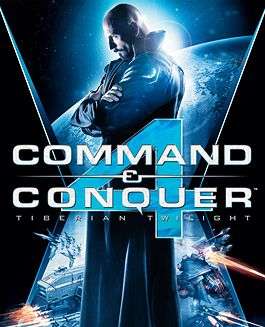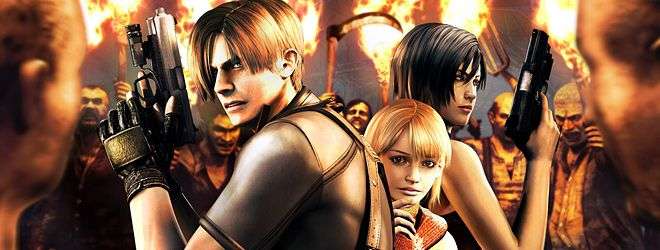Fanboy Loyalty or Cowardice?
by GL Guest Writer
by Mark Lawson
 Video game fans are some of the most passionate and well-informed fans in their medium of entertainment and I personally can’t think of an industry with such an enthusiastic worldwide grasp on our imaginations and wallets. When a company says or does something, we know within a few hours and most likely pay attention as if it was of great international importance like a terrorist attack or declaration of war. However, such a strong bond with game franchises and development studios has also made gamers some of the most self-entitled people I have ever seen or heard of.
Video game fans are some of the most passionate and well-informed fans in their medium of entertainment and I personally can’t think of an industry with such an enthusiastic worldwide grasp on our imaginations and wallets. When a company says or does something, we know within a few hours and most likely pay attention as if it was of great international importance like a terrorist attack or declaration of war. However, such a strong bond with game franchises and development studios has also made gamers some of the most self-entitled people I have ever seen or heard of.
Only in the games industry do people truly believe that they deserve something for free, something to be a specific way or specific quality and length. I believe that, because we pay £39.99+ for a game, we expect higher standards of entertainment and quality for every pound. This can be understandable, as nobody wants to pay a high premium for something that sucks, but does this give us the right to become armchair game designers?
Splinter Cell is a franchise that always pushed the boat on technology, and defined the genre of stealth gameplay. With this came a great responsibility to its fans to give them the experience they’d come to expect – Sam must always be a ghost, stalking and bypassing his enemies as if he was never there to save the world from something Jack Bauer would panic about. Due to technical and design limitations though, if you did something the game didn’t want you to do — get detected — the game would break as a punishment for you fucking up. A veteran soldier and super-spy can’t kick ass in a gunfight when needed?
 This was fine the first three times. As a franchise grows, the gameplay surely evolves, with Halo being an excellent example of evolution over revolution. However, after Double Agent it was clear that Sam was getting on in his age and needed to take a vacation to get over the death of his daughter or something.
This was fine the first three times. As a franchise grows, the gameplay surely evolves, with Halo being an excellent example of evolution over revolution. However, after Double Agent it was clear that Sam was getting on in his age and needed to take a vacation to get over the death of his daughter or something.
Most gaming fans and critics could see that the series was becoming formulaic and tired as the same game was being released each time but with boxes being ticked for mere gameplay additions rather than new ideas. So, Conviction was born and Sam was no longer the Shadow of Death, as he was known as before, and what happened? The fans that supported Ubisoft burst into tears. What happened to stealth?! What happened to the game I was with from the start?!
The best example of this reaction is Resident Evil 4. Resident Evil evolved in a similar pattern to Splinter Cell as the franchise got popular; the design started to get gray in the temples and change was needed before burnout happened. Resident Evil 4 ripped apart everything the franchise was known for, redefined third person action and is the most duplicated game in design than any other of this generation and yet those hardcore fans denounce it as a real game in the series. Fuck off.
Why do hardcore fans always do this? People seem to grow a strong attachment to things they like and seem to delude themselves that the product was made for them, when in fact the game was made to be sold to the most people possible. Not liking a game is fine; that is opinion. To suggest, however, that the game is a disgrace to the name because it’s not a clone of the series is depressing and something which game developers have to battle with every time they release a new game, as people don’t like change.
 Conviction is still very much a stealth game; it just allows players to be action-focused also. There is nothing wrong with changing a game’s formula if the result is still good. I didn’t think that Splinter Cell was about hiding bodies, any more than having dinner is about doing the dishes. If you want to play like the classic Splinter Cell games, that is still possible and there are even modes which encourage this – play Hunter or Infiltration mode with only pistols and no gadgets, and you can see how stealthy the game can be.
Conviction is still very much a stealth game; it just allows players to be action-focused also. There is nothing wrong with changing a game’s formula if the result is still good. I didn’t think that Splinter Cell was about hiding bodies, any more than having dinner is about doing the dishes. If you want to play like the classic Splinter Cell games, that is still possible and there are even modes which encourage this – play Hunter or Infiltration mode with only pistols and no gadgets, and you can see how stealthy the game can be.
I digress though, as the subject confuses me tremendously. There are, of course, examples when games changed too much and was harmed for it — Sonic, Command & Conquer 4 — but in most cases, the culture of “churning out another” that we live in, due in part to the unstable and rather risky economy of the gaming industry, means that a game taking a risk is rarer than I would like (I’m a Dreamcast fan). Do these hardcore fans want the same game every time until it bleeds dry, or are they just insecure about the things they love leaving them like a long-term girlfriend?
I genuinely don’t know, but I am glad it didn’t stop Ubisoft from selling more than two million copies of Conviction as it is a game which, in both story and gameplay design, deserves a sequel to expand the foundation laid this time. If you are a denouncer of Conviction (or other games which break the mould), can you say why that is so? What gives you the right to display such arrogance to claim that Conviction is not a proper Splinter Cell game?
While you do that, I’ll enjoy playing an awesome game.
Last five articles by GL Guest Writer
- Pokémon Sun and Moon - Preview
- Are The Likes Of Skylanders and Amiibo Doing More Harm Than Good?
- “I’m Not Mentally Ill Because I’m A Gamer, But Am I A Gamer Because I’m Mentally Ill?” - by Holly Nielsen
- Fanboy Loyalty or Cowardice?
- I’m Afraid You Have Consolitis





















I suppose I’m torn with this one, in some respects. As much as I champion progress and creativity, as well as utterly DESPISING when devs/publishers shy away from risking any new IP, there are times when games have changed so much that I can’t even bring myself to play them. Red Alert 3, for example, is one where I bought it and played it, and wished I’d spent my money on something more enjoyable like an acid bath. It could well be that I was stupid enough to get it for Xbox rather than PC, or it could simply be that it was utter wank. Either way, I hate what they did with it and the ridiculous cartoony graphics and umpteen options for each unit was just nonsense.
Although it’s not a progression of the same series, the new X-COM from Firaxis has taken a radical sidestep away from what the original Enemy Unknown had and, as much as I’ll miss time units and some aspects of the micromanagement, I’m still willing to give it a decent chance to win me over.
I think that those buying the games have the right to be fucked off when something has changed and made the game unplayable for them, but I don’t think they have the right to assume entitlement to anything or should even be heard by the developers for that matter. Ultimately, the IP and entire creative process belongs to the devs and only they should have a say in what happens with it. Publishers should also pay particular attention to that last sentence.. you know who you are, and how you keep fucking with the C&C series.
The thing with game series is that a lot of them we grew up with – and seeing them change in a way we don’t like is like losing a friend who moves to another country to never be seen again. It can be pretty upsetting, and with the way systems have grown in the last couple of decades, we don’t want to see our favourite concepts lost to aging consoles (Which is why I’m a fan of HD re-releases).
While I find sometimes these risks are for the better, such as Resident Evil 4. It kept the horror but made the game easier to control. 5 wasn’t really scary enough, but then Capcom proved that it wasn’t the change of perspective that had caused that result – Revelations was plenty scary enough and felt like a proper Resi title using the new style.
There are two situations where I understand (and have even been part of) fan outcry in these situations.
The first is when a company decides to change its gameplay style altogether – such as Sonic the Hedgehogs move to 3D, or Final Fantasy’s change to automated battles with AI team-mates in XII and XIII.
Final Fantasy is a prime example to me. A series that has been around as long as I have, and to me the best RPG series there is. However, between XII and XIII, gameplay became so changed from the traditional format that it lost most of the features that I loved and failed to satisfy my RPG needs – and I’ve since struggled to find another title that could fill that void in my library.
While I have no say in company decisions or new ideas, I do believe that a series becomes linked to certain concepts and traditions – such as Final Fantasy’s party-based controls and explorable worlds. If a company wants to change such core concepts to a series over 20 years old, it makes you wonder if they should be starting a new series that utilises these new mechanics, rather than shoehorning them into a series that has built up brand loyalty. Sure, they probably brought a few new fans to the series, but I’m sure they lost as many, if not more. When a series has set certain standards for so long, I think they set themselves a bar to meet and core ideals that should be upheld – when does it stop being “Final Fantasy”? I don’t think it’s totally unfair to expect developers to meet a bar that they themselves have set.
The second instance is reboots, which have become so popular over the last few years. Perhaps even more insulting to long-time fans, is the idea of “scrap everything and start again”. That’s not to say that I disgree with the concept at times – Castlevania: Lords of Shadow was an incredible title and a vast improvement on previous 3D Castlevanias, but the time that it does irritate me is when they scrap an incomplete plot – while the Devil May Cry reboot caused uproar for multiple reasons, the thing that got me is that the most recent game in the series was left with lots of unanswered questions that may never be resolved now. If a writer decides to leave a story with loose ends or a cliff-hanger, you generally hope that they would be intending to fill in the blanks in the next installment. And then you feel cheated that what you previously purchased was an unfinished product.
It’s not so much that gamers necessarily believe they have a right to how a game is developed – it’s more a panic that the series they’ve grown to love will be lost forever or deformed beyond recognition. And all we can do at that point is make as much noise about it as possible and pray that someone hears us. I think it’s desperation more than self-entitlement.
I really enjoyed this, and it echos my own thoughts pretty closely. I think that there is a great deal of self-entitlement in general among gamers, perhaps more so than other mediums. The whole Mass Effect 3 ending debate was a good example, but it does go further than that. It used to be that when you would buy a game, you put up with it… you were just grateful (or not) for what you got. With the age of the internet, with access to endless screens, vids, demos, diaries, and a pseudo friendship with the devs on forums and the like, I think that gamers become far more immersed and invested in things than they ever used to… and I think that this familiarity can breed the sort of attitude that you are talking about. While it has the plus side of passion and enthusiasm for a product, it can also cause trouble when that same product isn’t wwhat was expected, or changes something key, etc.
As far as long running franchises go, I can understand, in a way, why people make a fuss, and Leon makes some great points on this score, speaking about desperation as opposed to entitlement. I myself wrinkled my nose at the new addition of ‘Instinct’ to the new Hitman game. “What the fuck is that?” I remember thinking. “Are they trying to rip off Batman? Why do they need to do this? Make players work for the damn win like in Blood Money, which was bloody hard.” But I’m sure there will be a choice as to whether I use it, and I suspect that the core gameplay will be as good as ever. Some change can be good, especially if it is, essentially, optional, but if, as Leon mentions, it damages or changes things beyond the point where people can suffer it, fan outrage becomes a little more understandable.
Again though, I can also understand the point of view of the developers. They must get fed up, working on the same thing, game in, game out, and want to shake things up. They may not have the choice of starting a fresh series using the new ideas… the publishers would likely be a big roadblock as far as this goes. They may change things out of boredom, frustration, to put in new ideas that they had for previous games, but which just never made it in before, etc. Also, who do they listen to? Some fans may want change X, Y, and Z… so they do it… and everyone else who doesn’t want it, screams blue murder. Rock and a very hard place.
Hey, you’re not trying to write some pychology thesis or something andtrying to get free input for gamers are you? lol.
Personally I think the whole ‘intitled’ issue is now a human thing, we are constantly bombarded with adverts inwhich if something hasn’t gone right in life – product failure, accident or PPI then you deserve to get money or stuff for free, but it is more intense in the mind frame of the hardcore gamer for a few reason but mainly because a hardcore gamer lives life in two realities. A hardcore gamers lives the normal’ Joe Blogs’ everyday life – goes to work/college or in my case college and home maker, buys food, pays bills etc just as a normal everyday person does but then at some point in the day picks up a controller and enters an extremely immersive world and all the worries of the every day stress are left in the other reality. Now when you add that into a reality of a long running francise inwhich the fabric of that reality is, by then, so established that it truely becomes another world. Lets take something everyday for example, like turning on a tap, what would happen to you mindframe if all of a sudden the tap water was blue? You would phone the water board and panic! is something badly wrong? Is it safe to use, etc! Somoe people would accept it and some would panic and hell owuld break loose of a while till other water was found.
More than that, there is some much in the world today that is wrong but we as average people are powerless to change it, but gamers are handling a product, much like a car or stereo, that if it isn’t what we wanted we do try and do something about. gamers like a familair world that nothing changes and just more that the same stuff that we have enjoyed is reproduced, hell I would love Borderlands 2 to not change but just to have a totally differant location, same with Elder Scrolls, GRAW etc but others wouldn’t.
I think there was nothing worng with Mass Effect 3′ endings other that the FMVs could have differed a little more from each other but I think the hardcore gamers compained due to the fact they didn’t get the ‘rosey, you kicked arse and saved the worlds ending and still was alive to get the ticker tap parade’ and the fact the immersive world that WAS Mass Effect actually ended! It was good but now it’s over, full stop, no threads left over to argue another game. MOVE ON! (and wait for the movie/ TV series to complain about)
I’ll try and make a break from everyone else and try and make my comment a bit shorter, but as everyone else has said, it’s such a hard one to define. There are games where I haven’t liked specific changes in the formula, but I always at least appreciate the fact that they’ve at least attempted to swap things up and try something new. I can’t think of any games where I’ve specifically denounced the series or an entry in it for introducing something I didn’t like, but I can think of several where an element introduced has put me off that specific title. The example that comes to mind is the Ace Attorney series. I LOVE every title ridiculous amounts, but part of me STILL can’t get over the way that Phoenix was treated in Apollo Justice. It doesn’t matter much in the long run though, because I still loved the game and the spin-offs, because they were fun, well made games. It’s tough man, fans of series get up in arms over stuff, but I doubt I’m going to incite a riot if companies ruin a series I love or make a shit game in the series. It doesn’t mean I don’t think Spirit Tracks is the worst 3D Zelda that exposes every flaw in the series, but it’s not going to stop me spunking myself stupid if they announce another Zelda game at E3.